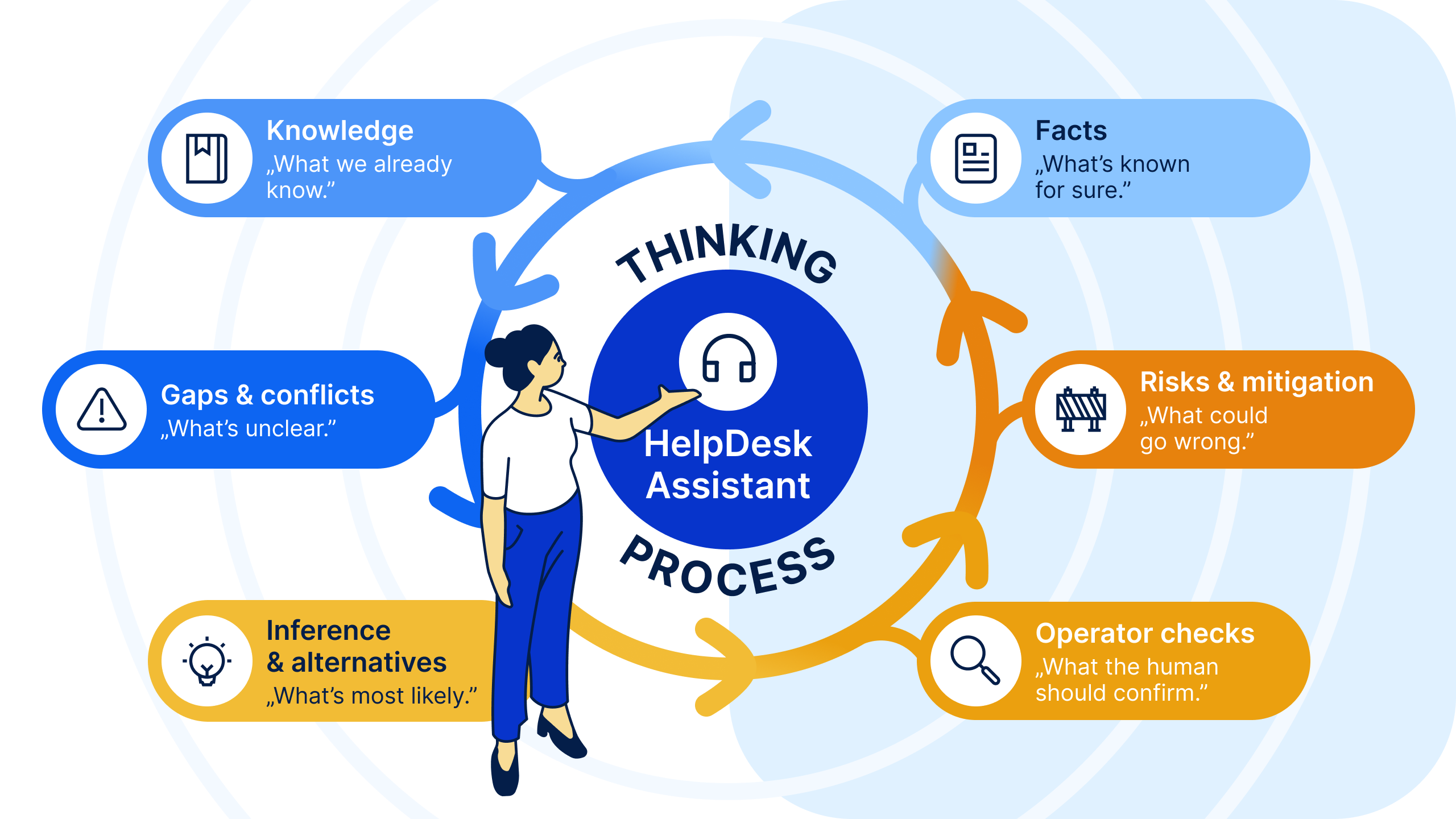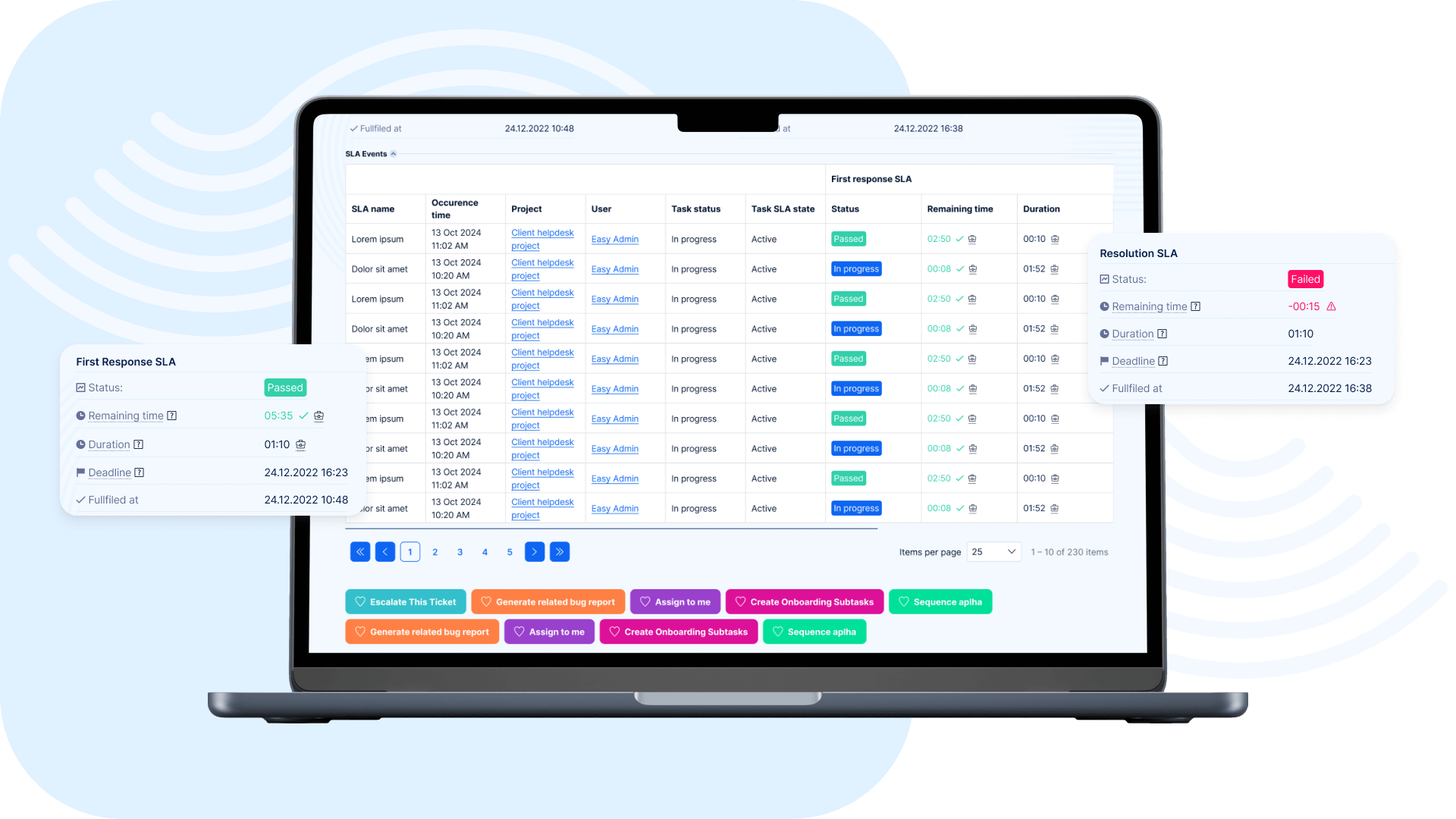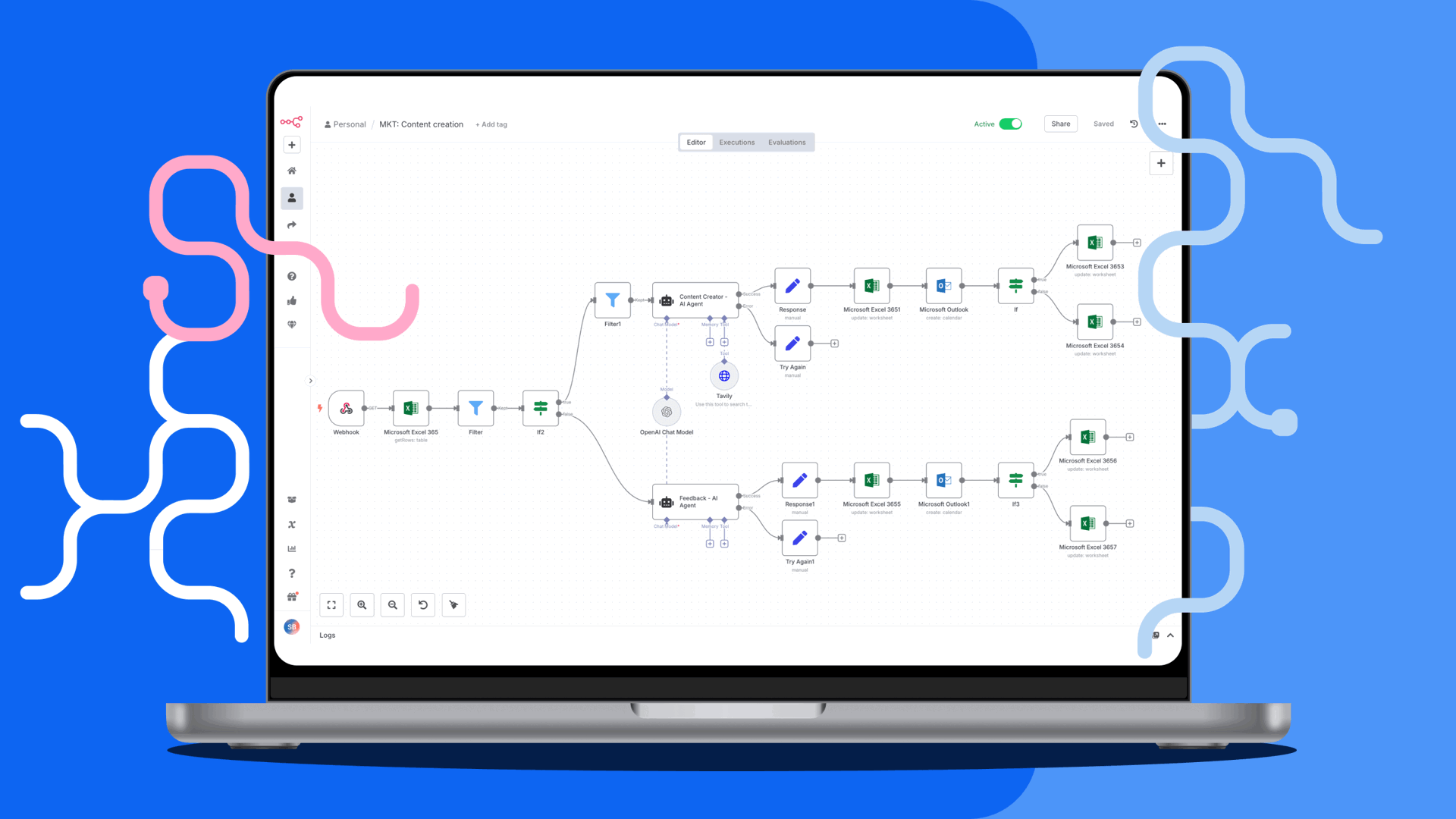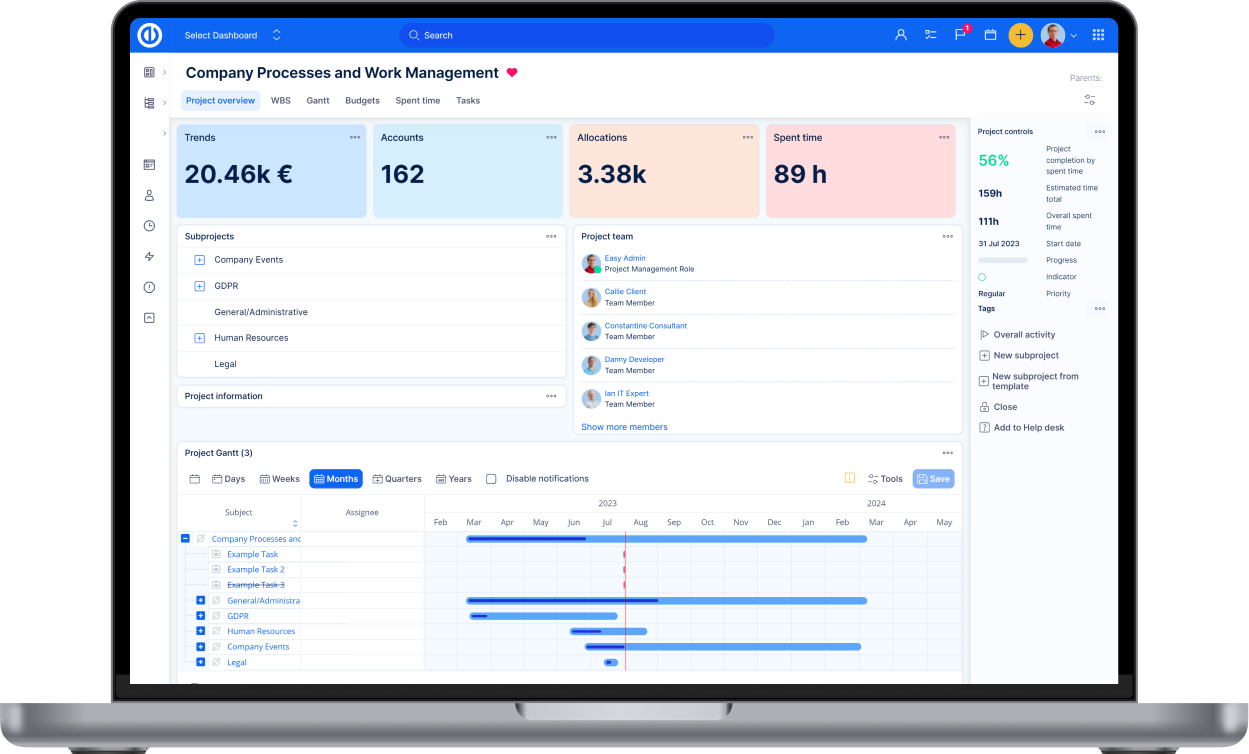From assistant to AI agent: When AI learns to think
Great customer support isn’t just about answering quickly — it’s about understanding what really lies behind each question.
Our first HelpDesk Assistant could find similar cases and suggest replies in seconds. But sometimes, a fast answer wasn’t the right one. So we went back to the drawing board.
We taught the AI to think deeper, question assumptions, and work hand-in-hand with human experts. The result is the new HelpDesk Agent – an AI that not only responds, but thinks.
The evolution of HelpDesk Assistant
| Old HelpDesk Assistant | New HelpDesk Assistant (Agent) | |
|---|---|---|
| 1. Mission & mindset
| Focused on producing replies fast. Treated every issue as a simple question.
| Aims to deliver evidence-based, reliable answers. Understands complexity and uncertainty.
|
| 2. Thinking process | Looked for similar tickets and repeated patterns. Missed gaps or contradictions.
| Thinks in layers: Facts → Knowledge → Missing info → Conclusion → Risks. Highlights what needs clarification.
|
| 3. Collaboration with people | One-way workflow – AI produces, operator reviews. | Two-way dialogue – AI asks, refines, and builds the solution together with the agent. |
| 4. Output quality | Fast but often shallow and inconsistent. | Clear, transparent, and ready to send – with full reasoning behind every answer. |
| 5. Impact | Time lost rewriting AI drafts. Limited operator trust. | Faster responses, higher confidence, and consistent quality across the HelpDesk.
|
The next chapter of HelpDesk work
The new HelpDesk Assistant works like a true AI Agent. It no longer gives quick guesses — it thinks, checks, and collaborates.
It helps our teams see the bigger picture, spot what’s missing, and solve even complex issues with confidence.
By combining human insight with AI reasoning, we’ve built something greater than a tool — a true HelpDesk partner.
Every HelpDesk reply begins with reasoning
Before drafting an answer, the HelpDesk Assistant moves through six thinking steps — from gathering verified facts and known procedures to spotting gaps, testing alternatives, and identifying risks. This structured approach turns complex tickets into clear, confident solutions — faster and with full transparency.
- Facts – It starts by extracting a concise fact from the ticket or internal knowledge, including a certainty evaluation.
- Knowledge –Then it provides a concise knowledge description from relevant documentation, also with a certainty evaluation.
- Gaps & conflicts – Next, it detects missing, contradictory, or unclear details, such as version differences, environment settings, or unclear scope.
- Inference & alternatives –It forms the main conclusion (with certainty) based on Facts and Knowledge, and outlines the top alternatives.
- Operator checks – It suggests what the human HelpDesk operator should verify or clarify with the client before finalising the reply.
- Risks & mitigation – Finally, it identifies potential pitfalls and recommends how to validate or prevent them before the response is sent.
This six-step reasoning process is what turns every AI-generated draft into a transparent, traceable, and trustworthy solution — one that teams can confidently send to the customer.

HelpDesk Assistant thinking process
Watch HelpDesk Assistant in action
Implementation story: From assistant to AI agent in real life
Every evolution becomes real only when it meets practice. The shift from our HelpDesk Assistant to the new HelpDesk Agent wasn’t just an internal milestone — it unfolded together with our customers.
In one anonymised implementation, a client’s everyday support request became the perfect testing ground for the new AI approach.
Step by step, it showed how an assistant that once only replied could now understand, reason, and collaborate — turning a routine ticket into a shared success story.
Webinar recording: AI agent for support teams
Forget manual steps. Eliminate information gaps.
In this webinar, our experts Jakub Dubiel and Jan Robíček show how AI and automation can streamline every stage of the support ticket lifecycle — from intake to reporting.
You’ll see how AI:
- routes tickets automatically from chat, client zone, or email,
- suggests replies and creates bugs on its own,
- summarises issues and updates the Knowledge Base,
- and delivers instant feedback and performance insights.
Watch the recording to see how AI helps support teams work faster, smarter, and with fewer repetitive tasks — so they can focus on customers, not on chasing updates.
Working hand in hand: Knowledge Assistant Pro
Behind every confident HelpDesk Assistant stands another quiet hero — the Knowledge Assistant Pro.
It supports the HelpDesk Assistant by providing an extra layer of verification: operators can instantly check any AI-generated reply against real documentation or internal articles.
Both assistants work with the same knowledge collections, ensuring their understanding and references are perfectly aligned.
Just like the HelpDesk Assistant, the Knowledge Assistant can also read and interpret images and PDFs, making it an invaluable tool for technical support teams who work with screenshots, manuals, or configuration exports.
Together, they form a seamless duo — one that reasons, the other that validates — helping operators deliver precise, transparent, and trustworthy answers every time.
Watch Knowledge Assistant in action
SLA enhancements now live in HelpDesk
As promised, the smarter SLA management feature for Help Desk is now fully released and available in the current version of the application.
What’s new now:
- SLA status is now updated automatically when a ticket’s status changes — no email needed.
- Tickets now display live SLA data for both First Response and Resolution: Status, Remaining time, Duration, Deadline, and Fulfilled at.
- All of this info is now also accessible on dashboards, via API, and so it can be used with the n8n automation engine.
- A new “SLA events” section now appears on each ticket — right near the new SLA region.
It shows a detailed history of all support ticket events and contains old and new SLA fields for easy transition.
What’s next:
Note: Old SLA fields will be gradually removed. Clients will receive a clear notification in advance — so you’ll have time to adapt.

SLA performance tracking dashboard
"Tracker" is now called "Task type"
To make Easy Redmine more intuitive for all users beyond the traditional Redmine community, the term Tracker has been renamed to Task type. While “Tracker” has been widely used within Redmine for years, it is not self-explanatory for most users. Task type clearly reflects what it represents — different kinds of work items in your projects.
This is a terminology update only. The functionality remains unchanged.
The renaming aims to improve usability, onboarding, and adoption of this important feature for a wider user base.
Detailed documentation remains available here
Please note that the new terminology will be gradually reflected throughout the documentation in the coming weeks.
Is your team AI-ready? Take the test!
AI is reshaping the way organisations operate, yet each company is progressing at its own pace. Whether you are only beginning to explore its potential or already generating measurable value through automation and AI agents, it is important to understand where you stand.
Assess your current position with our AI adoption test and receive tailored recommendations and next steps aligned with your level of maturity.

AI adoption pyramid
Webinar series: Discover how AI agents transform the way organisations work

Our AI agents & automations series shows how intelligent automation takes over routine work, accelerates workflows, and frees your people for what truly matters.
Available now – webinar recordings:
- 18.09. – The COO lens on Workflow Automation & AI Agents – Path to smarter operations
- 02.10. – Less busywork, more coding time – Give back 2+ workdays to your developers
- 16.10. – Security strategies for modern organisations in the AI era
- 30.10. – Smarter Support - Automating the Customer Service Flow
Upcoming live sessions:
- 13.11. – AI & Automations in projects and daily work. From informed project managers to supported teams.
- 27.11. – Smarter Sales: Generate qualified leads and gain deeper insights
Watch past sessions and register for the upcoming ones to see how AI Agents can boost efficiency and help your teams deliver more value.
For more technical details, see the latest Release notes for version: 15.3.0



